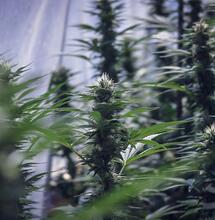The Environmental Impacts of an Unregulated Marijuana Industry

Indoor ops can use 1% of entire country's energy consumption, 2% of household consumption
Indoor ops can use 1% of entire country's energy consumption, 2% of household consumption
SOURCE: www.huffingtonpost.com
AUTHOR: Nick Visser
A majority of Americans may support pot legalization but in a changing landscape with more 420-friendly folk, the true environmental impacts of an unregulated cannabis industry are often forgotten on the day meant to celebrate it.
A report released in 2011 (and updated in 2012) estimated that indoor marijuana production may account for 1 percent of the entire country's energy consumption and 2 percent of all household consumption.
The solution? Get these growers outside.
Unfortunately for environmentalists, pot farming is only legal in two states so those illegal outdoor grow operations have caused some havoc within isolated national parks that make for ideal farms.
A recent report by Mother Jones focused on a troubling Google Earth video that shows the devastation wrought by illegal marijuana farms in California's Humboldt County, where some estimate more than 25 percent of the economy comes from pot.
The video was made by Anthony Silvaggio, an environmental sociologist with Humboldt State University's Institute for Interdisciplinary Marijuana Research. The video shows deforestation caused by more than 600 illicit grow operations.
"We have an unregulated industry here causing ... ecological harm," Silvaggio says in the video. "Talking with agricultural commissioners of different counties they report to me that it's difficult for them to help growers that want to do the right thing."
Another problem? Pot plants take a lot of water to grow.
Small, sustainable pot farmers markets have popped up in the area, where aficionados can sample and buy rare strains from small, local batches. But many of these farmers still grow in off-the-grid areas and illegally siphon millions of gallons of water without any regulation, the L.A. Times reported back in December.
One potential solution could be vertical farming, and one company in British Columbia is trying to get the permits to start a large-scale medicinal marijuana grow operation that would limit energy and water waste.
But the majority of public support mixed with the few states that allow legal grow operations has created some legal confusion at the expense of the environment. Humboldt State hosted the first Earth Day Symposium on Marijuana and the Environment this weekend to delve into some of these issues.
U.S. Attorney General Eric Holder has been urged to make a decision regarding government intervention in states where marijuana is legal.
But some cities have already decided to take action - Arcata, Calif. approved a 45 percent tax on households that use three times the normal amount of energy specifically aimed at pot producers.



